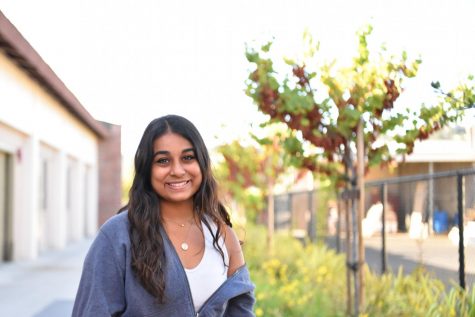‘This is my year’
How COVID-19 shouldn’t be determining the outcome of our year
An illustration of the New Year Ball Drop. Graphic by Sonia Verma
February 13, 2022
“This year is going to be my year.”
In the beginning of 2020, we were introduced to the original strain of COVID-19. From disinfecting groceries with Clorox wipes to restricting our interactions to our immediate families, 2020 posed the beginning of a nightmare that has yet to truly end.
In 2021, just when things began to improve with daily cases dropping and vaccines rolling out, the Delta variant made its way around the globe. The fear that we almost had the chance to let go of crept back again, and we longed for the time when we could walk around freely without masks and attend large gatherings without fear of infection.
Now it’s 2022, and the Omicron variant — this time more contagious and less severe — has infiltrated our homes and school at a previously unfathomable scale. Between our inboxes being flooded with exposure emails to COVID-19 tests and KN95 masks being distributed to students and staff, we’ve already experienced enough to decide that 2022 will clearly not be “our” year.
But it’s time we stop letting COVID-19 determine how good or bad our year will be. As we transition from pandemicity into endemicity, with most cases of infection proving less dangerous, we should attempt to live with the virus instead of making it the sole factor in the decisions we make. Though the virus is still a serious threat, especially to those who are health-compromised or unvaccinated, we should work towards continuing to take precautions while still doing the things we enjoy, making it entirely possible to still have a good year.
Out of 330 million Americans, about 210 million of them are fully vaccinated, and in Santa Clara County, 88.7% of the population is fully vaccinated. With immunity beginning to build up in our community, the longing for a post-pandemic world doesn’t seem too far out of reach. We shouldn’t rely on waiting for the virus to be “over” for us to live our lives.
“I think people are slowly starting to realize that we need to learn to live with this, because the virus is not going away,” Washington-based primary care physician Dr. Lucy McBride said in an interview with Voice of America.
We should also focus on allowing ourselves more grace. The past two years have been a rollercoaster, fluctuating in and out of quarantines among other national crises. We went through a whole year of school online, missing out on relationships, learning and laughter inherent to days spent with classmates and friends. From logging in to hundreds of Zoom calls to hearing the news of anticipated school events getting canceled, we’ve yet to have a definite ending date. With all that’s said and done, we deserve to have a year without constant worry surrounding a disease that’s quickly become an inescapable part of our lives.
It’s possible for this to be our year — we just have to allow it to be.




























